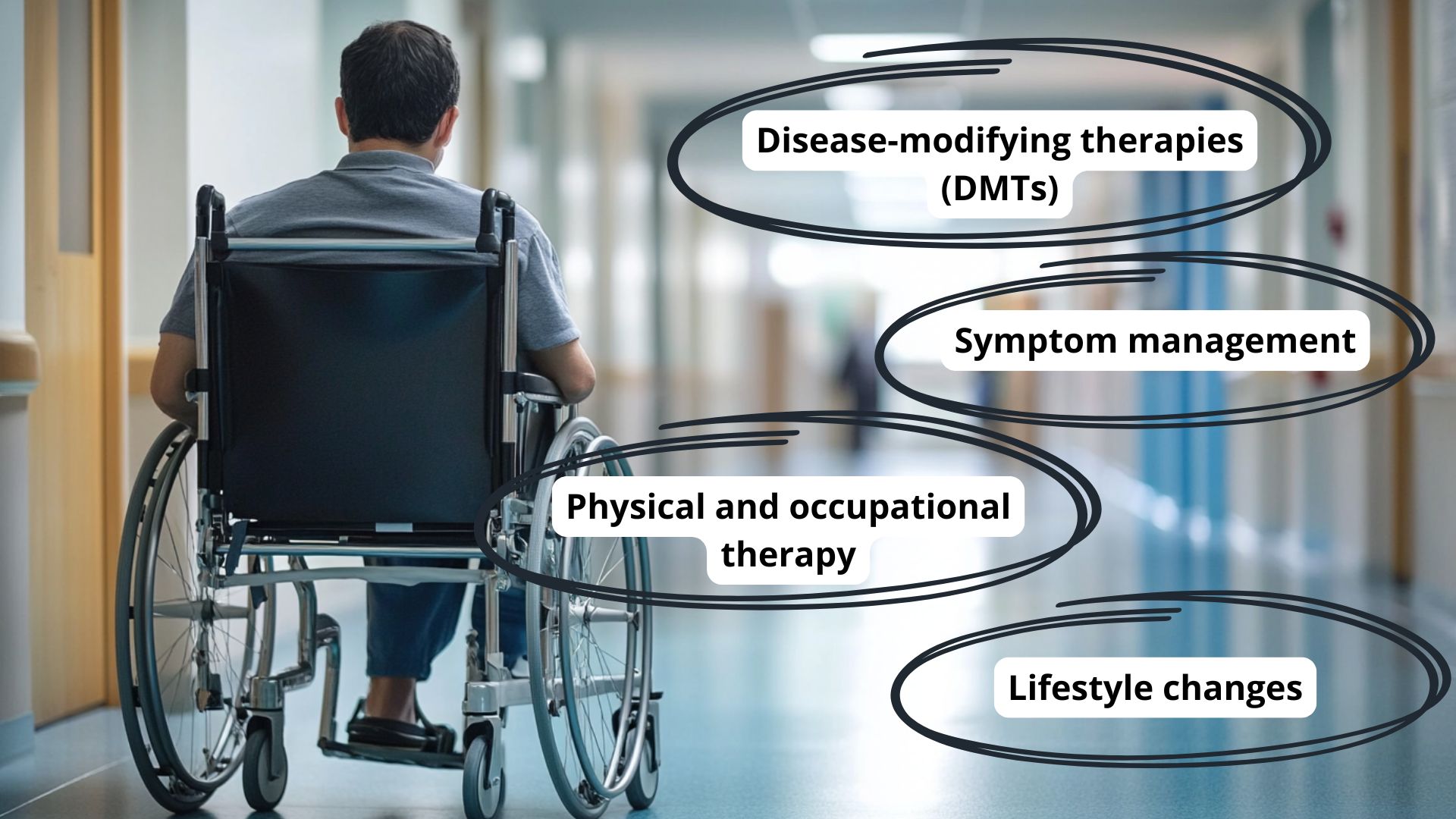Living in Texas means having wide-open spaces and vibrant communities. These aspects define our way of life. That is why health challenges like multiple sclerosis can feel overwhelming. This condition is one of the most common neurological diseases affecting young adults. It touches the lives of many Texans.
Understanding what multiple sclerosis is, how it affects people, and where to find help is crucial. It’s especially true for anyone facing this diagnosis or supporting a loved one. With growing awareness of autoimmune disorders and advancements in Texas healthcare, there’s hope and support available right here in the Lone Star State. Early diagnosis, access to quality care, and strong patient support networks can make a big difference.
Our article dives into what every Texan should know about multiple sclerosis. We will go from recognizing symptoms to Texas research that’s paving the way for better treatments.
Understanding Multiple Sclerosis in the Texas Context
Multiple sclerosis, often called MS, is a chronic condition where the body’s immune system mistakenly attacks the protective covering of nerves, called myelin, in:
- The brain
- Spinal cord
- Optic nerves
This damage disrupts how signals travel through the nervous system. It leads to a wide range of symptoms. As one of the most common neurological diseases, MS typically strikes people between the ages of 20 and 40. And women are about three times more likely to develop it than men. In the USA, about 1 million people are estimated to live with MS according to the National Multiple Sclerosis Society. As a result, this condition is a significant health concern.
The progression of MS symptoms varies. Some people experience relapsing-remitting MS, where symptoms flare up and then ease for periods. Others may face progressive forms, where symptoms steadily worsen over time.
The exact cause of MS isn’t fully understood. However, factors like genetics, environmental triggers (such as low vitamin D levels), and infections like the Epstein-Barr virus may play a role.
In Texas, sunny days are plentiful but lifestyles vary. So, understanding these factors can help people take proactive steps. For example, spending time in the sun can help. It boosts vitamin D and might lower the risk of developing MS. Or it can reduce symptom severity for those already diagnosed.
Recognizing MS Symptoms Before It’s Too Late
The early symptoms of multiple sclerosis can be subtle. They’re often mistaken for stress or fatigue. It makes recognizing MS symptoms so important. Common symptoms include:
- Vision problems. Blurred vision, double vision, or pain in one eye can be early warning symptoms.
- Fatigue. A deep tiredness that doesn’t go away with rest. It makes daily tasks like work or socializing tough.
- Numbness or tingling. A “pins and needles” sensation in the face, arms, or legs.
- Coordination issues. Trouble walking, balance problems, or muscle weakness that disrupts activities.
Imagine trying to enjoy a Texas barbecue. But then you struggle to hold a plate because of shaky hands or feel too exhausted to join the fun. These symptoms can disrupt life in big and small ways. It’s from missing out on family time to struggling at work. For Texans, recognizing these symptoms early and seeking help from a healthcare provider is critical. Delaying care can lead to more severe symptoms. So don’t ignore unusual changes in your body. A quick visit to a doctor in Texas healthcare systems could be the first step toward managing MS.
Diagnosing MS: What Texans Should Expect
Diagnosing MS presents a significant challenge. It’s due to the absence of a definitive, single test. Instead, healthcare professionals meticulously assemble a diagnostic picture using a multifaceted approach. This process typically involves a combination of neurological examinations, detailed patient history, and various diagnostic tools. These tools often include MRI scans of the brain and spinal cord to identify lesions. Also, they have evoked potential studies to measure electrical activity in the brain. And sometimes, they offer lumbar punctures to analyze cerebrospinal fluid. This process allows doctors to carefully evaluate symptoms and conditions before confirming a diagnosis:
- Neurological exam. A doctor checks your reflexes, coordination, and vision. This is done to spot signs of nerve damage.
- MRI scans. These detailed images of the brain and spinal cord reveal lesions or scars caused by MS.
- Spinal tap (lumbar puncture). This test analyzes spinal fluid for signs of immune activity linked to MS.
- Blood tests. These help rule out other conditions with similar symptoms. For example, Lyme disease or vitamin deficiencies.
In Texas, medical centers like Lone Star Neurology have advanced tools and experienced neurologists. They specialize in neurological diseases. The process can take time. It requires multiple visits, but it’s worth it for an accurate diagnosis. Early diagnosis can lead to better outcomes. So don’t hesitate to seek care if you suspect MS. Texas has a strong network of specialists ready to guide you through this process with compassion and expertise.
Living with MS: Treatment Options and Healthcare in Texas
There’s no cure for multiple sclerosis. However, treatments can help manage symptoms and slow the disease’s progression. Texans have access to top-notch care through Texas healthcare systems. It offers a range of options tailored to individual needs. Common treatments include:
- Disease-modifying therapies (DMTs). Drugs like Ocrelizumab and Fingolimod reduce relapses and slow nerve damage. These are available as oral medications, injections, or infusions.
- Symptom management. Medications like steroids can reduce inflammation during flare-ups. Meanwhile, muscle relaxants or pain relievers help with discomfort.
- Physical and occupational therapy. These therapies improve mobility, strength, and daily functioning. These therapies help patients stay active.
- Lifestyle changes. Regular exercise, a balanced diet, and stress management techniques like yoga can ease symptoms. These changes can also improve well-being.
Texas is home to leading MS clinics, such as Lone Star Neurology. These centers are recognized by the NMSS for their comprehensive care. They combine neurologists, rehabilitation specialists, and counselors to create personalized plans. Many clinics also offer access to clinical trials. This gives patients a chance to try cutting-edge treatments. Today, many Texas healthcare systems prioritize multidisciplinary care. So, MS patients can find hope and practical solutions to live fuller lives.
The Role of Patient Support and Community Resources
Living with multiple sclerosis can feel isolating. However, patient support networks in Texas make a huge difference. Connecting with others who understand the challenges can boost emotional health. And it can provide practical advice. Texas offers a variety of resources, including:
- Support groups. The National Multiple Sclerosis Society hosts in-person and virtual groups across Texas. They range from Dallas to Houston. In these groups, patients share experiences and coping strategies.
- Nonprofit organizations. Groups like the Multiple Sclerosis Association of America provide educational materials. They offer financial assistance and wellness programs.
- Caregiver resources. Family members and caregivers can find training and support through organizations like the MS Society. This helps them better care for loved ones.
- Online communities. Virtual forums and social media groups allow Texans to connect with others worldwide. These communities offer 24/7 support.
For example, the MS Walk, an annual event in cities like Austin and San Antonio, brings together patients, families, and advocates. The goal is to raise awareness and funds. These events foster a sense of community. These events remind Texans they’re not alone. Building a support network can ease the emotional toll of MS. This helps patients stay connected and empowered. Whether it’s joining a local group or chatting online, patient support is a lifeline for navigating life with MS.
Advancements in MS Research: The Texas Contribution
Texas is a powerhouse in medical research. And Texas research is making progress in understanding and treating multiple sclerosis. Universities and medical centers across the state are leading the charge. These efforts focus on improving care for autoimmune disorders like MS. Key players include:
- UT Southwestern Medical Center. It’s recognized as a world leader in MS research. Their program conducts clinical trials and studies biomarkers to predict disease progression.
- Baylor College of Medicine. Their MS Clinic is involved in drug trials and research on related conditions like neuromyelitis optica.
- UT Health Houston. Their Neurosciences team uses advanced MRI techniques to monitor MS and test new therapies.
These institutions collaborate with the National Multiple Sclerosis Society and global organizations. They are pushing the boundaries of what’s possible. For example, researchers are exploring how neurofilaments in blood tests can predict MS severity. This could potentially lead to earlier interventions. Clinical trials in Texas give patients access to innovative treatments not yet widely available. They offer hope for better outcomes. This Texas research is a beacon of progress. It shows that the state is not just treating MS but helping shape its future.
The work being done in Texas brings real hope to those living with multiple sclerosis. From cutting-edge studies to compassionate care, the state’s medical community is committed to improving lives. For Texans, this means access to world-class resources and a chance to contribute to groundbreaking discoveries through clinical trials. The fight against MS is far from over. However, Texas is leading the way with innovation and heart.












I've given up... the stress her office staff has put me through is just not worth it. You can do so much better, please clean house, either change out your office staff, or find a way for them to be more efficient please. You have to do something. This is not how you want to run your practice. It leaves a very bad impression on your business.
Please, leave your review
Write a comment: